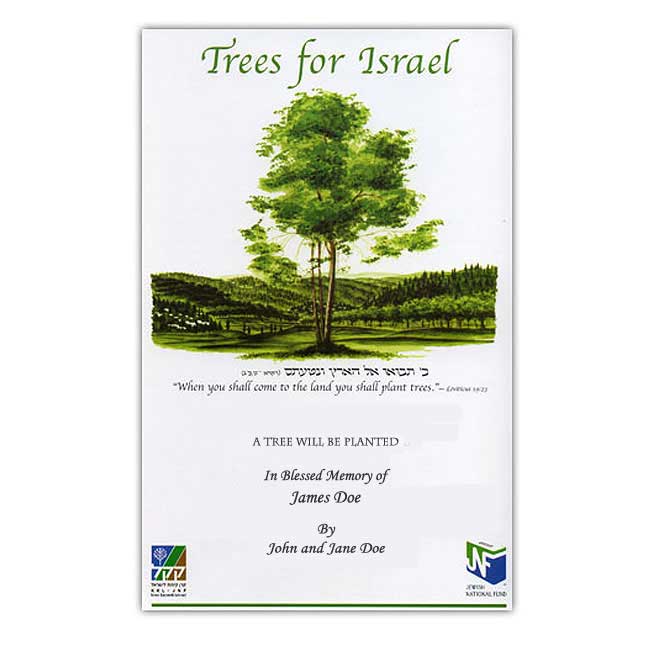|
Tu B'Shevat
and the Law
On Wednesday, the 4th of February we celebrate Tu B’Shevat or literally the 15th day of the Jewish month Shevat. While Tu B’Shevat is not well known outside of Israel, it has great agricultural significance for The Land.
Tu B’Shevat is the “New Year for Trees.” When calculating the age of a tree, 15 Shevat is considered the “birthday” for all trees in Israel, no matter when the tree was actually planted. Thus if a tree is planted on 13 Shevat it begins its second year two days later on 15 Shevat. Conversely, if a tree is planted on 17 Shevat it is nearly a year before the tree reaches its second year.
Why would we be so concerned about the age of a tree? The answer, of course, lies in the Torah. In Leviticus 13:23-25 God tells us, “When you enter the land and plant any kind of fruit tree, regard its fruit as forbidden. For three years you are to consider it forbidden; it must not be eaten. In the fourth year all its fruit will be holy, an offering of praise to the Lord. But in the fifth year you may eat its fruit. In this way your harvest will be increased. I am the Lord your God.”
Therefore, the calculation of a tree’s age is very important so not to violate God’s commandment. It is thought that God forbade the eating of fruit for five years not as punitive, but to allow time for the tree to firmly establish itself in the earth. Most fruit trees take several years before they will bear fruit. For the health of the tree is it best to let the tree mature on its own. In five years the fruit will be abundant and the tree strong; God has shown us restraint so we will have fruit for many, many years in the future.
Tu B’Shevat is celebrated mostly by the planting of trees. Each year there are thousands of trees planted throughout Israel on Tu B’Shevat. Communities and Jewish National Fund forests host events to give families opportunities to plant new trees. At these events there are also stalls where participants can make crafts from wood, seeds, pinecones and other “tree materials”. There is singing and dancing and of course food.
Food offerings center on the Seven Species of Israel, particular those that come from trees: olives, dates, figs. Pita dough is presented for children to roll then it is baked on a saj over an open fire and slathered generously with silan (date honey) or olive oil and zaatar. There are delicious cookies and cakes made with figs and dates.
However, these celebrations will be a little bit different this year because there will be no trees to plant. While this seems sad, do not fret. It is due to the important Torah mandated agricultural laws of Israel. This year is Shmita, or Sabbatical, which occurs every seven years. It is a year-long furlough from working the land of Israel. As a result, there will be no trees planted this year.
This is not to say we can’t plan for next year! Even though trees will not be planted until Rosh HaShannah, the Jewish National Fund greatly wants people to keep arranging for trees to be planted in Israel. It is very important that as soon as the Shmita is over the JNF can resume its marvelous work keeping the Holy Land green!
Therefore, if you are moved to Plant-a-Tree in Israel, please don’t hesitate just because of the Shmita. You can participate in this wonderful mitzvah knowing the laws of the Torah are being observed.
While Tu B’Shevat is not well-known it is nevertheless significant. It enables us to abide by God’s law, make Israel beautiful and assures Israel can be self-sufficient. Furthermore, it provides an important lesson for us all: restraint now will result in a bounty of blessings to come.
We rejoice in God’s guidance as He leads us towards the inner bounty found in His Word.
Happy Tu B’Shevat!
Click here to learn about Tu B'Shevat
Click here for more about Shmita
|
![]()






